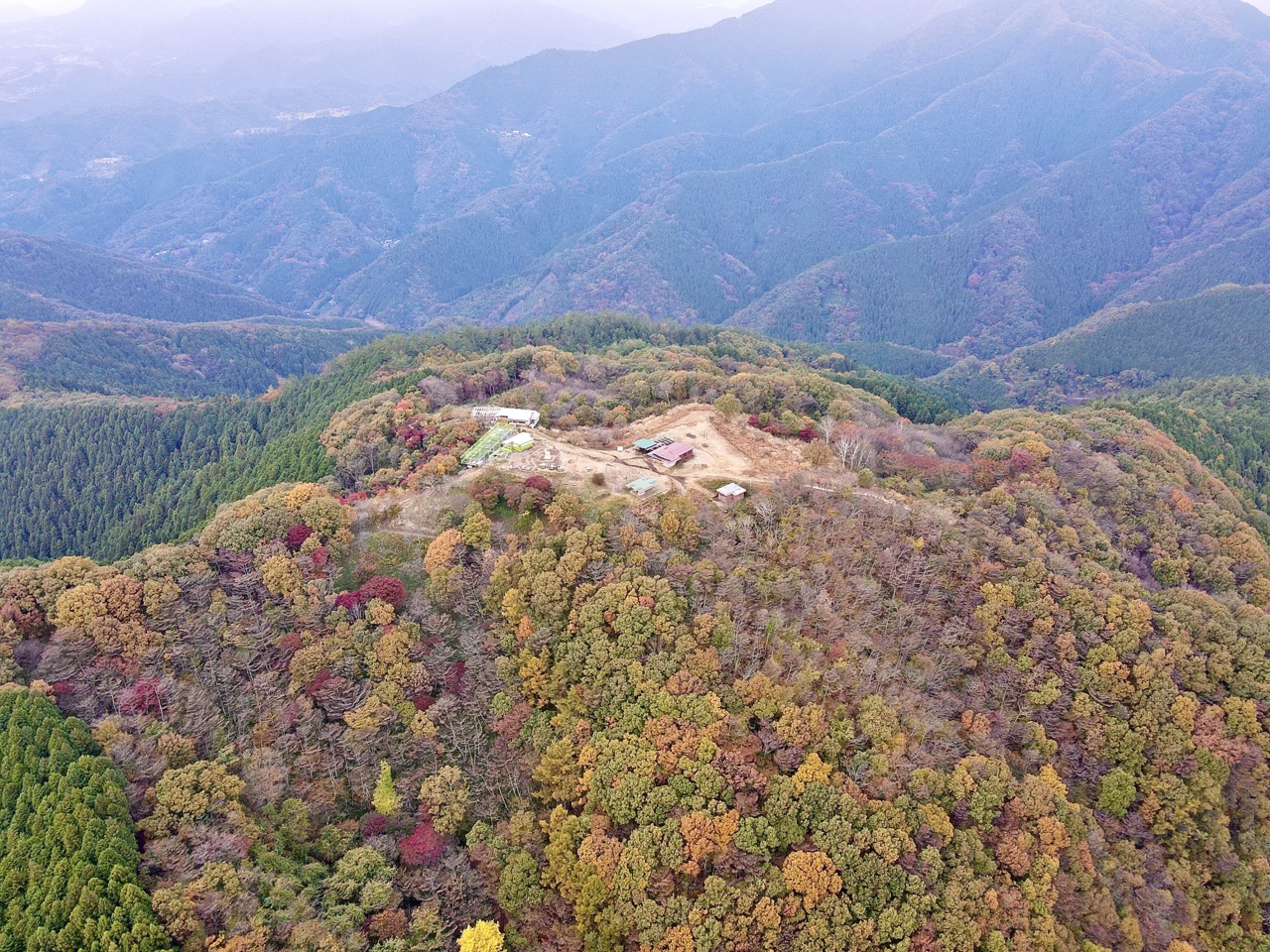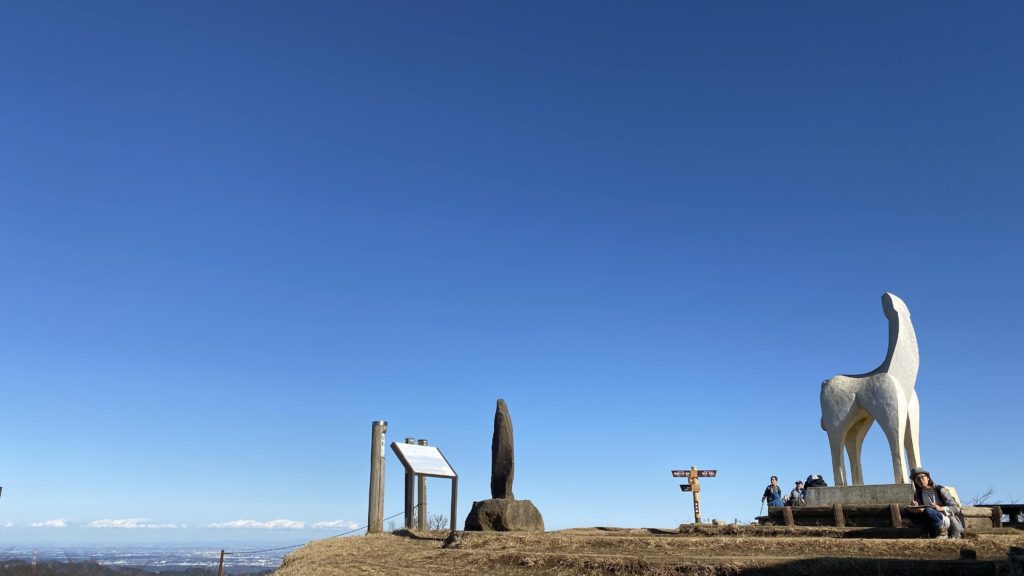
Mt. Jinba
・・・Mt. Jinba・・・
The summit of Mt. Jinba offers a 360-degree panoramic view of Tokyo’s neighboring prefectures, taking in Mt. Fuji and Lake Tanzawa to the west and the Boso Peninsula in Chiba Prefecture to the east. Mt. Jinba is one of the 50 Scenic Locales of Kanagawa Prefecture and is a popular spot for viewing autumn foliage.
Trails leading up the mountain vary in difficulty, from leisurely to very steep. The two easiest trails from the base to the summit can be accessed via the parking area at Wada Pass, where entrance to several trails in the area is clearly marked. To reach the peak of Mt. Jinba, follow the 1.1-kilometer section of the Kanto Fureai no Michi (Greater Tokyo Area Nature Trail) from Wada Pass or the wooden stairs of the Traverse Route. Both routes start from the parking area, from where it is 165 meters of elevation to the summit. A round trip takes around 60 minutes, making it suitable for most people with a basic level of fitness.
Picnic areas and teahouses at the summit offer refreshment and places to rest. Many are situated to offer good views of the surrounding mountains. Three restaurants serving Jinba soba, a buckwheat noodle dish named after the mountain, operate during climbing season. The noodles are served in a broth with shiitake mushrooms and sansai (edible mountain vegetables) grown in the area. A slice of yuzu citrus peel is sometimes added for aroma.

The name Jinba literally means “horse camp mountain” and is said to have originated from the camps set up there during the late sixteenth century, when the Takeda and Hojo warlord families were fighting for control of the area. A large white statue of a horse at the peak welcomes hikers and pays homage to this history. It was erected in 1969 by the Hachioji Tourism Association and sponsored by the railway operator Keio Corporation.
Mt. Jinba is located on the border separating Tokyo and Kanagawa Prefectures, only one hour by public transport from the Shinjuku area in downtown Tokyo. A hiking trail connects Mt. Jinba to Mt. Takao (599m) in Hachioji, Tokyo. The trail takes around 7–8 hours to complete at a comfortable pace for most people with a basic level of fitness.
